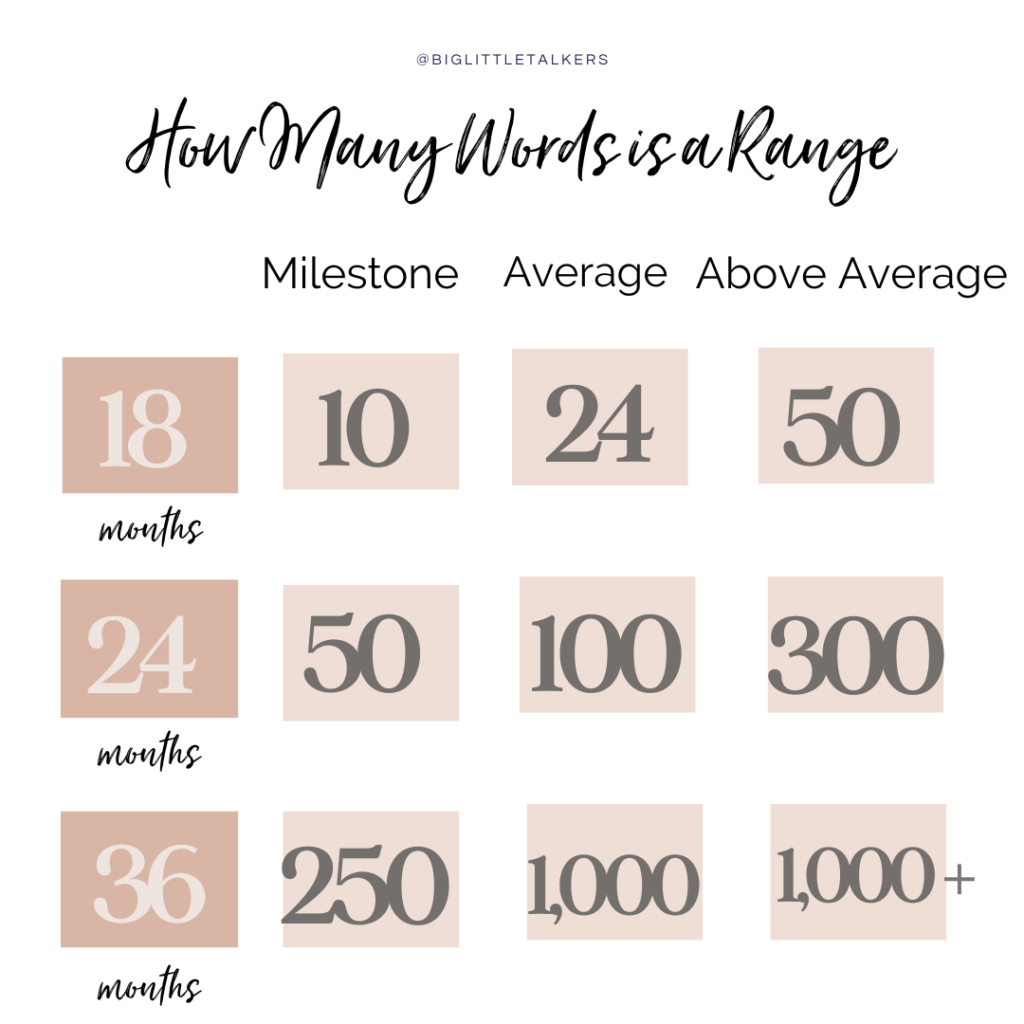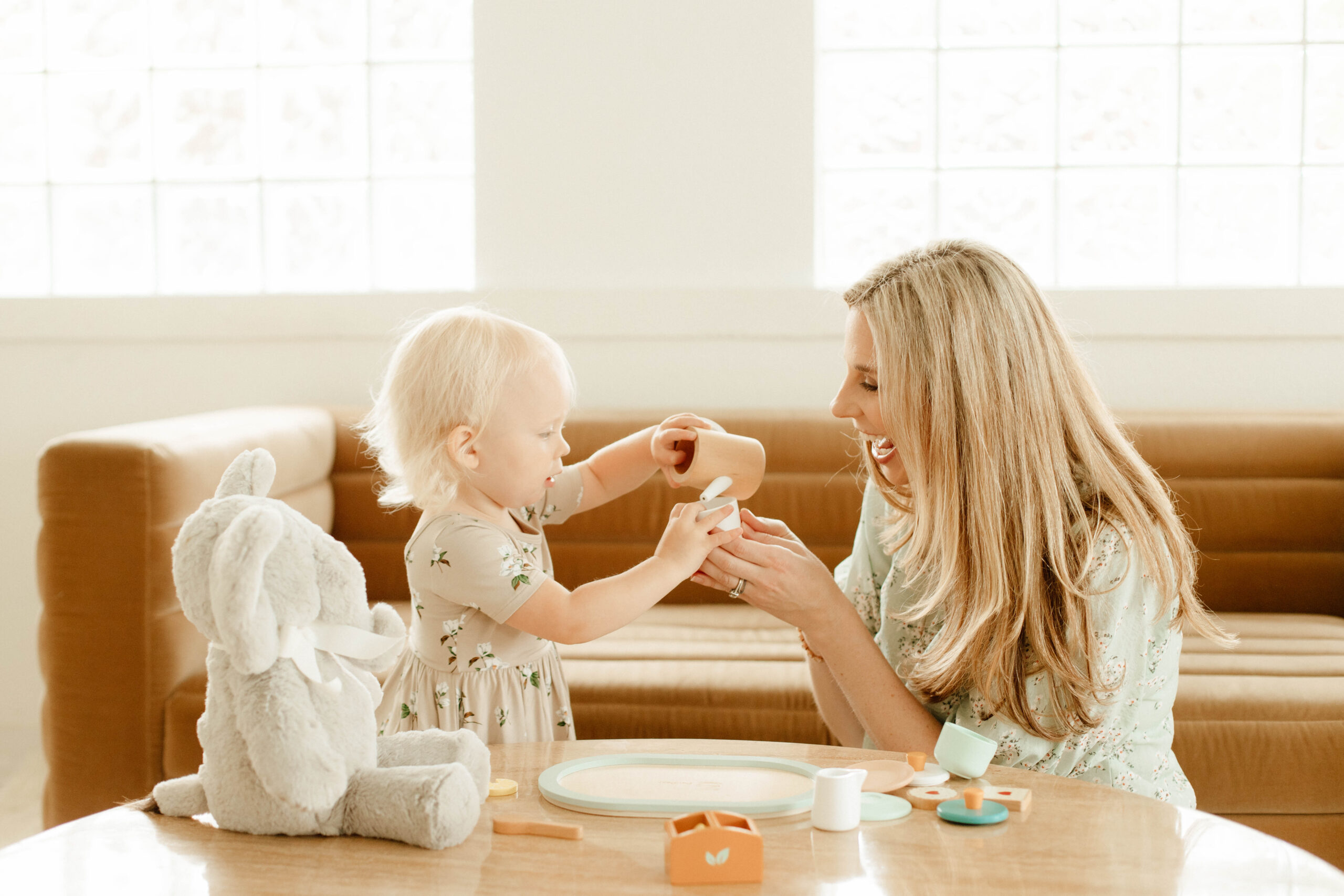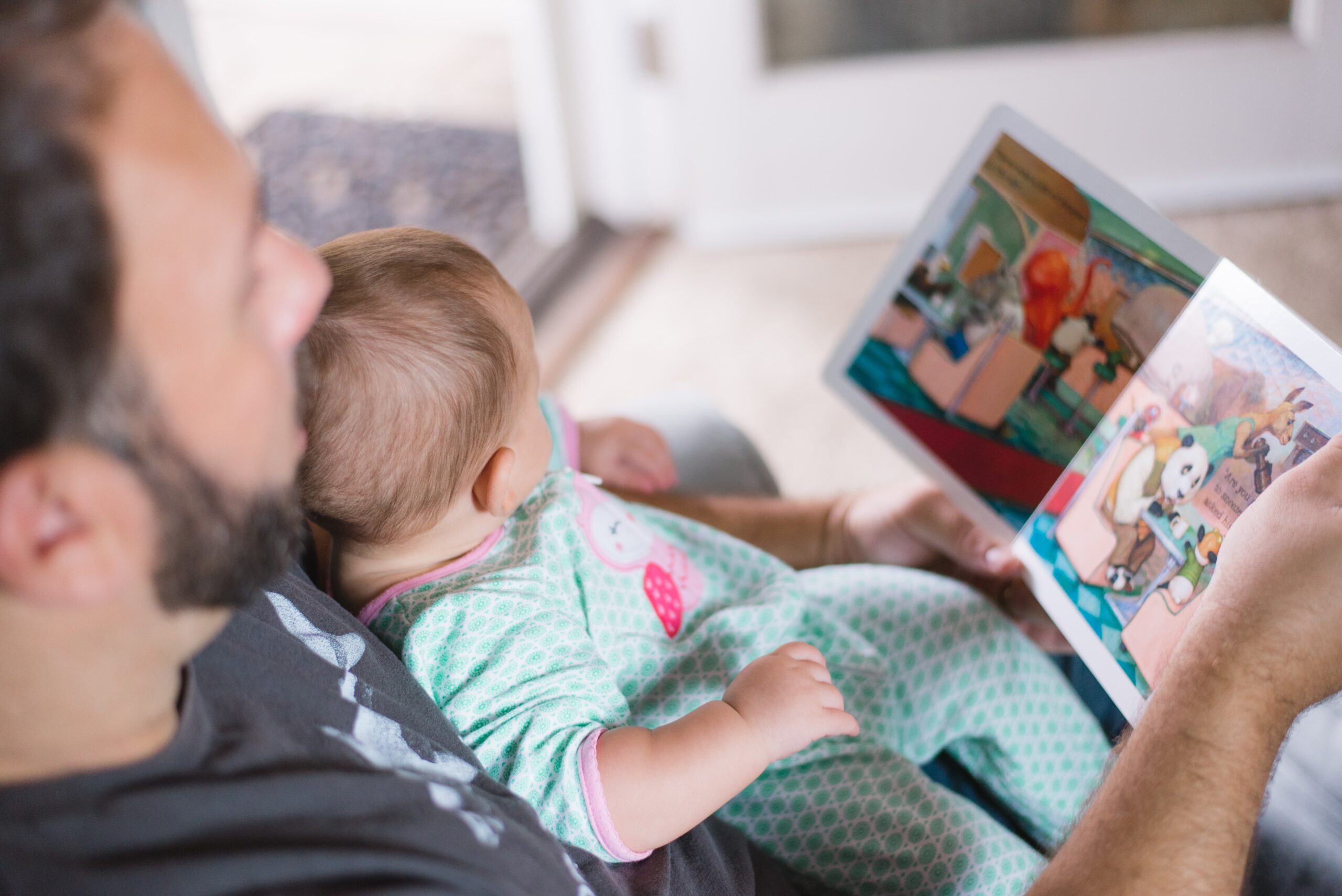
How many words should my toddler have is a question I get asked on the daily.
Why? Because it’s confusing! With different sources saying different things, the CDC changing their milestones, and your Aunt Betty insisting, “Einstein didn’t talk until he was three,” it’s not wonder you’re confused!
Let’s start by talking about what counts as a word:
1️) It’s consistent: Your child always uses the same object to label the same thing. If it’s “mmm” for milk, your little one always says “mmm” for milk
2️) It approximates our version of the word: It probably won’t sound exactly like ours, but as long as it’s their version of a real word, it counts! My daughter says “baba” for blanket and that totally counts! Think of it as their version of the word
3️) The words must be said with the intention to communicate: In other word, they must be saying “mama” in reference to you
4️) It’s used in a variety of settings: We see a word used across settings and situations so it’s “dog” when they see a dog on a walk, at the park, in their book, etc.
Now let’s talk about what a “milestone” is:
A milestone isdefined as what “MOST” children are able to do at a certain age (e.g. think approximately 75% of children can do X) so agencies like the AAP and CDC are using milestones as the guide.
But here’s where it gets confusing:
Speech therapists tend to use an “average” word count. Here is what the Hanen Center recommends:
18-20 months: 24 words
21-23months: 40 words
24 months +: 100 words
So who’s correct?
Technically everyone is. It just depends on which criteria they’re using
The best way to picture it is a range.

The Takeaway
Most children follow a similar path of language development, there is some give and take on when skills appear. Areas such as temperament, personality, and learning style all play a role.
But here’s the thing-if you do have concerns about your child’s speech development, or just want to give your child’s speech a little boost, there are so many things you can do to support your little one’s speech at home!
From birth to 3, your child’s brain grows faster than it ever will again! It’s during this time your child will acquire the foundation for a lifetime of communication.
The stronger your child’s language skills, the better they’ll be to express their thoughts and feelings, connect with others, learn in school, collect information to make good decisions, speak up for themselves, pursue their talents, and learn from what they hear and read. That’s why focusing on language (and seeking support if you need it) is so important early on.
And you don’t need Pinterest-worthy activities to do it. It really is the small moments that make a big impact. That’s why all the resources you’ll find at Big Little Talkers are made to take the simple, everyday moments and turn them into opportunities to meet your little one where they are and guide to what’s next.
p.s. As a parent, you are in a powerful and unique position because there are so many things you can do to support your child’s speech development. Not sure where to start? I’ve got you covered! Check out my Late-Talker Course to learn how to help your toddler say more, get frustrated less, and off to the best possible start with speech and language.
References:
Nicolosi, L, Harryman, E, & Kresheck, J (2006). Terminology of communciaiton disorders (4th ed) Baltimore: Williams & Williams
Centers for Disease Control and Prevention. (n.d.). CDC’s Developmental Milestones. Retrieved on January 25, 2023 from CDC’s Developmental Milestones | CDC
Language development: Speech milestones for babies. Mayo Clinic website. Retrieved on January 25, 2023 from https://www.mayoclinic.org/healthy-lifestyle/infant-and-toddler-health/in-depth/language-development/art-20045163
Target Word™ – The Hanen Program® for Parents of Children who are Late Talkers. Retrieved on January 25, 2023 from Target Word – Hanen Program for Parents of Children who are Late Talkers





